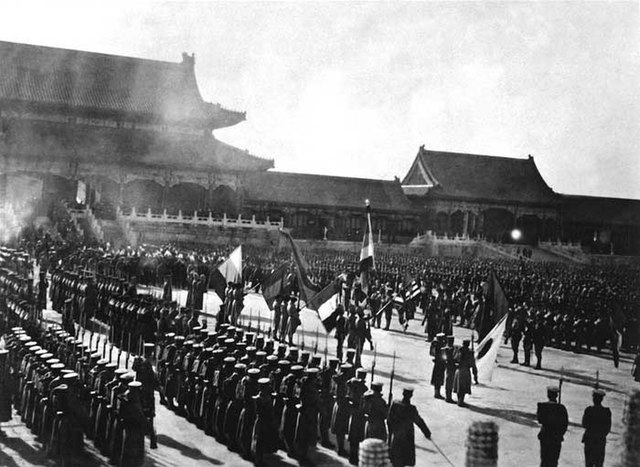The Treaty of Tientsin, also known as the Treaty of Tianjin, is a collective name for several unequal treaties signed at Tianjin in June 1858. The Qing dynasty, Russian Empire, Second French Empire, United Kingdom, and the United States were the parties involved. These treaties, counted by the Chinese among the unequal treaties, opened more Chinese ports to foreign trade, permitted foreign legations in the Chinese capital Beijing, allowed Christian missionary activity, and effectively legalized the import of opium. They ended the first phase of the Second Opium War, which had begun in 1856 and were ratified by the Emperor of China in the Convention of Peking in 1860, after the end of the war.
Signing of the Anglo-Chinese treaty of Tianjin
Unequal treaties refer to a series of treaties signed during the 19th and early 20th centuries, between China and various foreign powers. The agreements, often reached after a military defeat or a threat of military invasion, contained one-sided terms, requiring China to cede land, pay reparations, open treaty ports, give up tariff autonomy, legalise opium import, and grant extraterritorial privileges to foreign citizens.
The Eight-Nation Alliance inside the Chinese imperial palace, the Forbidden City, during a celebration ceremony after the signing of the Boxer Protocol, 1901.


